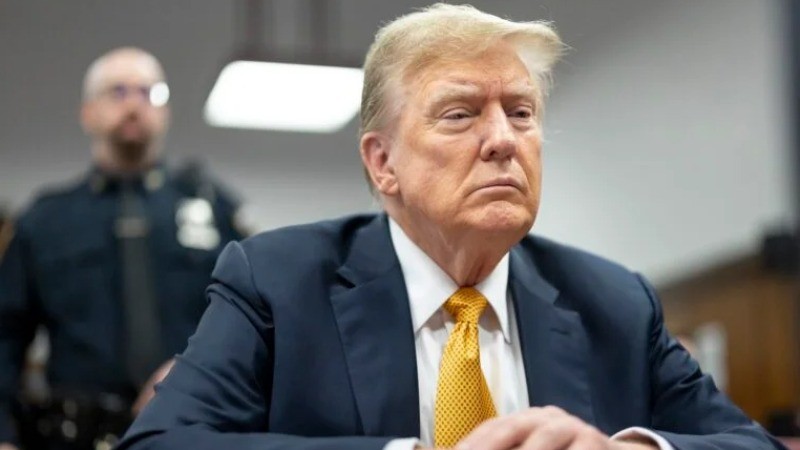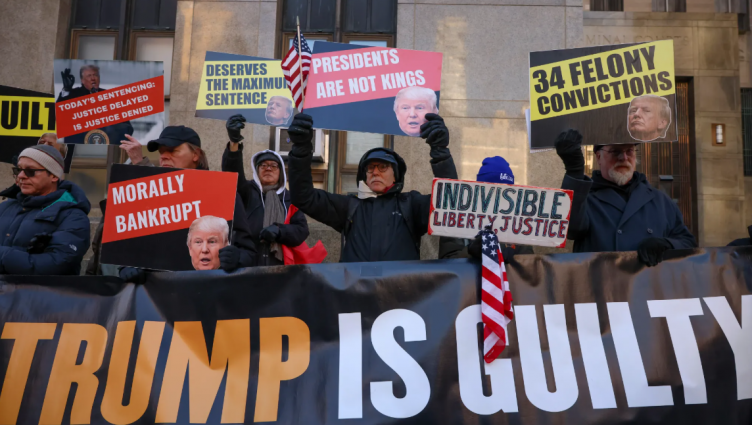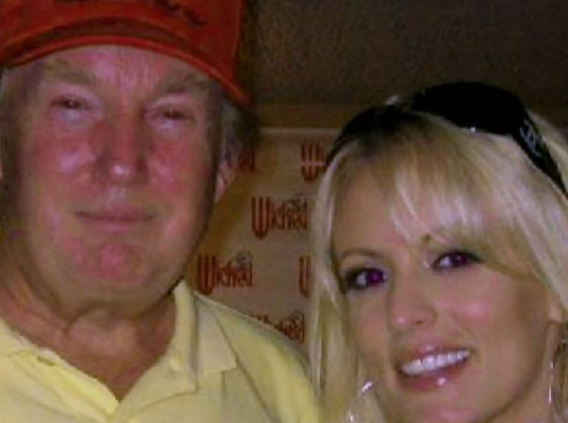
Donald Trump is all set to assume presidency within a few days. He becomes the first US President (former one or sitting) to face a criminal trial. Trump was convicted in a hush money case in May 2024 on the charge of falsifying business records 34 times to cover up payments before the 2016 election that he intended to commit a secondary crime. For which, Judge Juan Merchan has given him an ‘unconditional discharge’, a sentence available in the New York court system. The sentence comes after eighth week of the trial.

The verdict given on 10th January allows Trump to be released “without any imprisonment, fine or a probation supervision.” The president-elect tried to halt his sentencing but his last minute attempt and appeals were all rejected by the Apex court. During the sentencing Merchan said, “The only lawful sentence that permits entry of a judgement or conviction without encroaching upon the highest office of the land is an unconditional discharge. Therefore, at this time I impose that sentence to cover all 34 counts.”
The sentence was also influenced by Trump’s Presidential victory to which Merchan said, “It was the citizenry of the nation that recently decided that once again you should have the benefits of those protections which include, among other things, the supremacy clause and presidential immunity. It is through that lens and that reality that this court must determine a lawful sentence.”
The Hush money case

The Manhattan District Office Attorney Alvin Bragg had argued that Donald Trump had falsely documented as reimbursements to his former lawyer Michael Cohen to pay $130,000 to adult film star Stormy Daniels. The payment was made to silence Daniels about an alleged sexual encounter with Donald Trump, who was then-Presidential candidate. On financial records, the repayments were classified by Trump as “legal expenses.”
During the trail, the state prosecutors had argued that the falsifications were to keep the election law violation “a secret.” It prohibits a candidate to be promoted through unlawful means. The payment to Daniels was unlawful, an illegal campaign contribution. However, the prosecution called it a pre-emptive measure to protect Trump campaign from the increasing allegations of misconduct that surfaced for weeks before the election day. The payment of $130,000 breached, rather exceeded far to the legal individual campaign limit of $2,700.
Out of all his alleged affairs, Trump was in particular concerned about the release of the mic recording in October 2016, where he was boasting about grabbing women “by the pussy” without consent because he was a star. Trump dismissed it all even tried denouncing the proceedings referring it as a target of a politically motivated witch hunt.
Unconditional discharge
Donald Trump had legal protections due to the President office which was an overriding factor when it came to imposing a sentence upon him. To this, judge Merchan said, “Despite the extraordinary breadth of those legal protections, one power they do not provide is that they don’t erase verdict of the jury.”
An unconditional discharge, as mentioned earlier means that there will be no probation and fines, no penalty neither any jail time. If there would be a conditional discharge, then Trump would have to maintain certain conditions, something like paying restitution. In Manhattan, the defendants charged with falsifying records had to serve a term of at least six months. This is the report of the last decade. Only Donald Trump could have an unconditional discharge, the only viable solution in front of the jury.
Moreover, if there was any other restriction that barred Trump’s speech, movement or any other activity, it would be like restraining the President-elect. With the historical verdict, the drama around the hush money case has come to an end, after which Trump will return freely to the White house. Merchan said finally, “It is this Court’s firm belief that only by bringing finality to this matter will all three interests be served.”